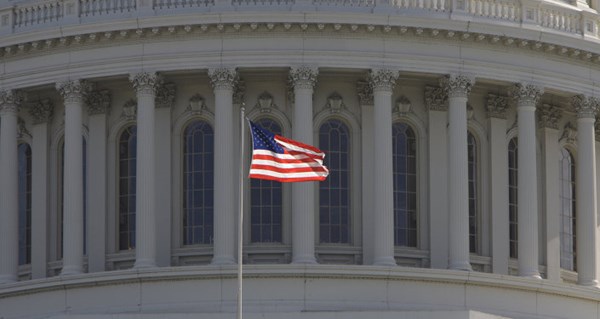US Congress prepares to deal new blow to Russian economy
The lull in sanctions which Russia enjoyed during US Congress’s interim elections and government shutdown is now coming to an end.
After the four-month break, Congress is once again discussing new measures that can be taken against Russia. The possibilities range from a ban on investments in Russian government debt to a complete disconnection of Russian government banks from the global dollar transaction system.
Congress’s first hearings following its elections will be held on 12 February in the Financial Committee of the House of Representatives, according to an announcement on the department’s official website. The topic will be “The Use of Sanctions and Economic Statecraft in Addressing US National Security and Foreign Policy Challenges”.
Although the committee intends to consider all the countries that are currently under US sanctions, including Iran, North Korea and Venezuela, there will be a “particular focus” on Russia, according to the memorandum on the committee’s website.
Since 2014, the US has imposed sanctions on Russian physical entities, companies and government organs for “interference in elections, aggression in Ukraine and in Crimea, a chemical attack in the UK, activity in Syria, non-compliance with sanctions against North Korea, and human rights abuses”, but these measures have proven to be insufficient to “deter” Russia’s “attacks on US interests and its assault on global values” the memorandum states. The committee will thus consider ways to “increase economic pressure on Russia”.
In 2018, 10 bills were put forward in Congress on measures against Russia.
The first, S.2313 (H.R.4884) was put forward on 16 January, and required the blocking of six Russian government banks, Gazprom, Rosneft and Lukoil, the prohibition of investments in new government debt, and the expansion of sanctions against officials and oligarchs.
The bill H.R. 5428 from 5 April required the blocking of assets and the banning of dollar transactions for seven Russian government banks (Sberbank, VTB Bank, Gazprombank, Bank of Moscow, Rosselkhozbank, Promsvyazbank and VEB), and the imposition of restrictions on derivatives.
Bill S.2780 (H.R. 6475, H.R. 6573) was put forward on 26 April and demanded that Russia be recognized as state that sponsors terrorism.
The next document, H.R. 5910, appeared on 29 May and required cyber-sanctions in response to Russia’s misinformation campaign.
On 18 July, a bill was put forward in the Senate (S.3229) to outright ban the financing of Russian energy projects. At same time, a bill was put forward in the House of Representatives with a milder set of sanctions against government banks (H.R.6423), with restrictions being imposed on only three of them.
On 1 August, all of these initiatives were summarized in a final bill (S.3336), which received support from both parties. In addition to new sanctions against officials and oligarchs, it requires that at least one Russian government bank must be cut off from dollar transactions, and that foreign investors must be banned from buying new bonds issued by the Russian government.
Sanctions against government banks would be the most dangerous scenario for Russia. Essentially this would mean that the system for handling dollars in the country would breakdown, observes Rosbank analyst Yevgeny Koshelev.
All transactions in US dollars take place through correspondent accounts with American banks. If these banks are banned from operating with Russian banks, Russia’s Central Bank and Finance Ministry will be forced to use their own reserves to rescue the situation, and the conversion of dollar deposits into rubles will become a reality.
“You can expect waves of capital outflow from the Russian market, which will lead to increased pressure on the ruble,” commented Vladimir Tikhomirov, chief economist at BCS, in August. The exchange rate will jump to 76 rubles per dollar, and the economy will decline yet again. Russia’s Central Bank will have to raise the key interest rate to 8.75%, and possibly even implement “moderate control over capital movement”, Tikhomirov wrote.
There is more at stake than just Congress’s initiatives. A second round of sanctions from the Donald Trump administration for the Skripals poisoning is still pending. New sanctions are also being prepared for the Kerch Strait Incident and the Kremlin’s refusal to return the detained sailors to Kyiv, US Special Representative for Ukraine Kurt Volker warned on 31 January.
The tightening of sanctions will take place in the next few months, and the measures that have been announced may still be expanded upon, Moody’s international rating agency predicts. The ban on purchasing new Russian government debt may be expanded to an outright ban on even holding Russian government bonds (sanctions against the secondary market). The same ban may also be imposed on bonds issued by banks.
If the sanctions are stricter than expected, it could lead to a new lowering of Russia’s sovereign rating, Moody’s warns.
